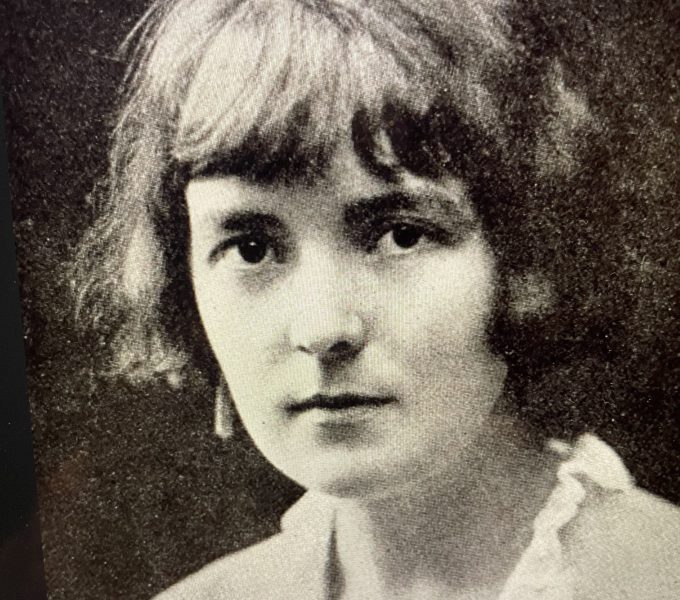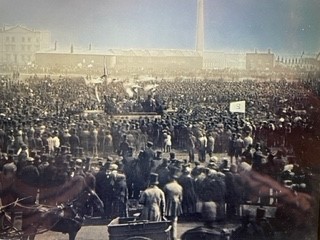TWO DAY COURSE ON JANE AUSTEN’S PERSUASION
Persuasion was the final novel Austen completed and was published posthumously in December 1817. In key ways, it is very different from the rest of her work. The novel’s heroine, Anne Elliot, is 27 and a candidate for spinsterhood rather than marriage. When the novel begins, she is about to lose her home because of her father’s profligate spending and the man she loved but rejected (on family advice) 7 years ago is just about to re-enter her world. Unlike her earlier novels, Persuasion is set in an explicitly post-Napoloeonic world and the hero, Captain Frederick Wentworth, has made a fortune from capturing enemy ships during the war.
On this course we’ll be thinking about the distinctive narrative and setting of Persuasion, how we should read the many forms of persuasion employed by characters and narrator, its revised ending and how the novel is shaped by the contexts in which it was written. We’ll also be discussing how far Persuasion marks a break with Austen’s previous fiction. Does the novel champion a new world against a (revised) old one? Is Anne a fully feminist heroine? Though this course focuses on a single novel, there will be plenty of opportunity for comparisons and we’ll also look at clips from recent adaptations. But, please note, this is not a general course about Austen, nor is there any particular focus on Austen’s life.
Day 1: Thursday 13 June
10.30am - 3.30pm
Members: £55 Non-members: £65
Concessions: £10 (call the office 020 8340 3343)
Morning session. Workshop: How is Persuasion different from and similar to Austen’s other novels? Here we’ll discuss the ‘classic’ Austen narrative and how Persuasion diverges from and holds to that pattern. We’ll also consider the novel’s wide social range and how it distributes and defines good and bad in characters and actions.
Afternoon session. Lecture and discussion: New and old: the contexts of Persuasion. The contexts in which Austen wrote are essential to understanding the novel. This is true at a local level, for example, Austen’s representation of contemporary tourism and Romantic reading but more generally. Persuasion is written and explicitly set after the end of the Napoleonic Wars at a time of huge economic change. The hero of the novel is a figure of the new (contrast Mr Knightley or Mr Darcy), associated with change, even instability. Old families (and their hangers on) are, for the most part, represented as snobbish, selfish and tending to the duplicitous and even malign. Key episodes of the novel occur outside private households, in hotels, in Lyme Regis and Bath and shape how Anne sees the world. What does it mean that Anne and Frederick have no house specified for them at the novel’s end?
Day 2: Friday 14 June
10.30am - 3.30pm
Members: £55 Non-members: £65
Concessions: £10 (call the office 020 8340 3343)
Morning. Lecture and Discussion: Forms of Persuasion. Persuading someone of something presumes different points of view and, at the very least, the possibility of conflict. The novel offers the reader numerous kinds of persuasion, some trivial, many serious, arguments based on reason, prejudice and emotion and various combinations of these. Through these various ‘cases’ of persuasion, the novel asks fascinating questions about moral autonomy. We’ll also consider the revision of the ending as another case of persuasion.
Afternoon. Workshop. Is Anne Eliot a feminist heroine? It is easy to see Austen’s novels as either proto-feminist in their centring on women’s experience as emotion and ethical beings, or see them as inherently politically conservative because of the ways in which the novels conclude by shoring up a traditional social order. Persuasion encourages us to think about Austen’s politics of gender in different ways. How should we read Anne’s journey from an obedient daughter who does not follow her own will or heart to one who is able to break with her family to enter a new world as a captain’s wife? How do we see Anne act on the world as the novel progresses? Which women in the novel that might offer Anne a role-model and whose example should she be most wary of?
Please buy the following edition (available from Amazon, WOB / World of Books or order from bookshops)
Jane Austen, Persuasion (1817), 2nd Norton Critical Edition, 2013, edited by Patricia Meyer Spacks. This edition includes the original ending, letters about the novel from Austen to Fanny Knight and contemporary and historical criticism which we will be making use of on the course.
Rachel Malik is a writer. She has written for a wide variety of publications, including the London Review of Books blog, New Left Review, Sight and Sound, Radical Philosophy, English Literary History and The Guardian. For many years Rachel taught English Literature at Middlesex University, leaving to concentrate on writing fiction. 'Miss Boston and Miss Hargreaves' is her first novel and was published by Penguin in 2017. The book was shortlisted for the Walter Scott Prize for Historical Fiction, 2018, and won her a writing residency at Gladstone’s Library in Hawarden, Flintshire. She is currently completing her second novel. Her website is rachelmalik.com



